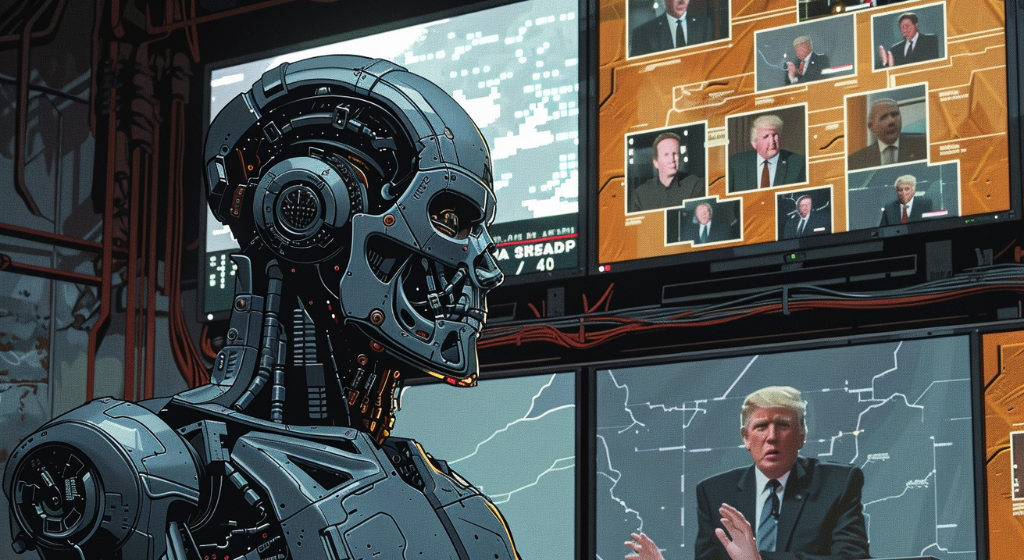
Russia remains the most active foreign threat to U.S. elections, aiming to erode trust in democratic institutions, exacerbate sociopolitical divisions, and degrade Western support for Ukraine through a vast multimedia influence apparatus. (Source: Image by RR)
Federal Officials Highlight New AI Challenges for Election Security in Light of Russian Threat
U.S. elections are increasingly threatened by foreign actors and advancements in AI, according to Director of National Intelligence Avril Haines, who spoke at a Senate Intelligence Committee hearing on the risks to the 2024 elections. As noted in npr.org, Haines highlighted that federal, state, and local officials face a “diverse and complex” threat landscape, but she also reassured that the federal government is better prepared than ever to protect election integrity, drawing on lessons learned since Russia’s interference in 2016.
Haines identified Russia as the most active foreign threat, using a wide range of media and online tactics to undermine trust in U.S. democratic institutions and exacerbate social divisions. Other nations, including China and Iran, are also attempting to influence American voters. The rise of AI technologies, such as deepfakes, and commercial firms that facilitate foreign influence operations, has made these threats more sophisticated and harder to trace.
Senate Intelligence Committee Chair Sen. Mark Warner emphasized that the barriers for foreign interference have significantly lowered, and adversaries have increased incentives to meddle in U.S. politics. He noted that trust in institutions has diminished across the political spectrum, complicating efforts to safeguard elections. Sen. Marco Rubio raised concerns about the credibility of those tasked with debunking false information, especially in a polarized environment where fake videos could target candidates close to elections.
Haines suggested that the response to false claims might vary, with federal agencies sometimes taking the lead and, in other instances, state or local officials stepping in to correct misinformation. The hearing marked the start of a series aimed at addressing election security to prevent a repeat of the 2016 interference.
read more at npr.org







Leave A Comment